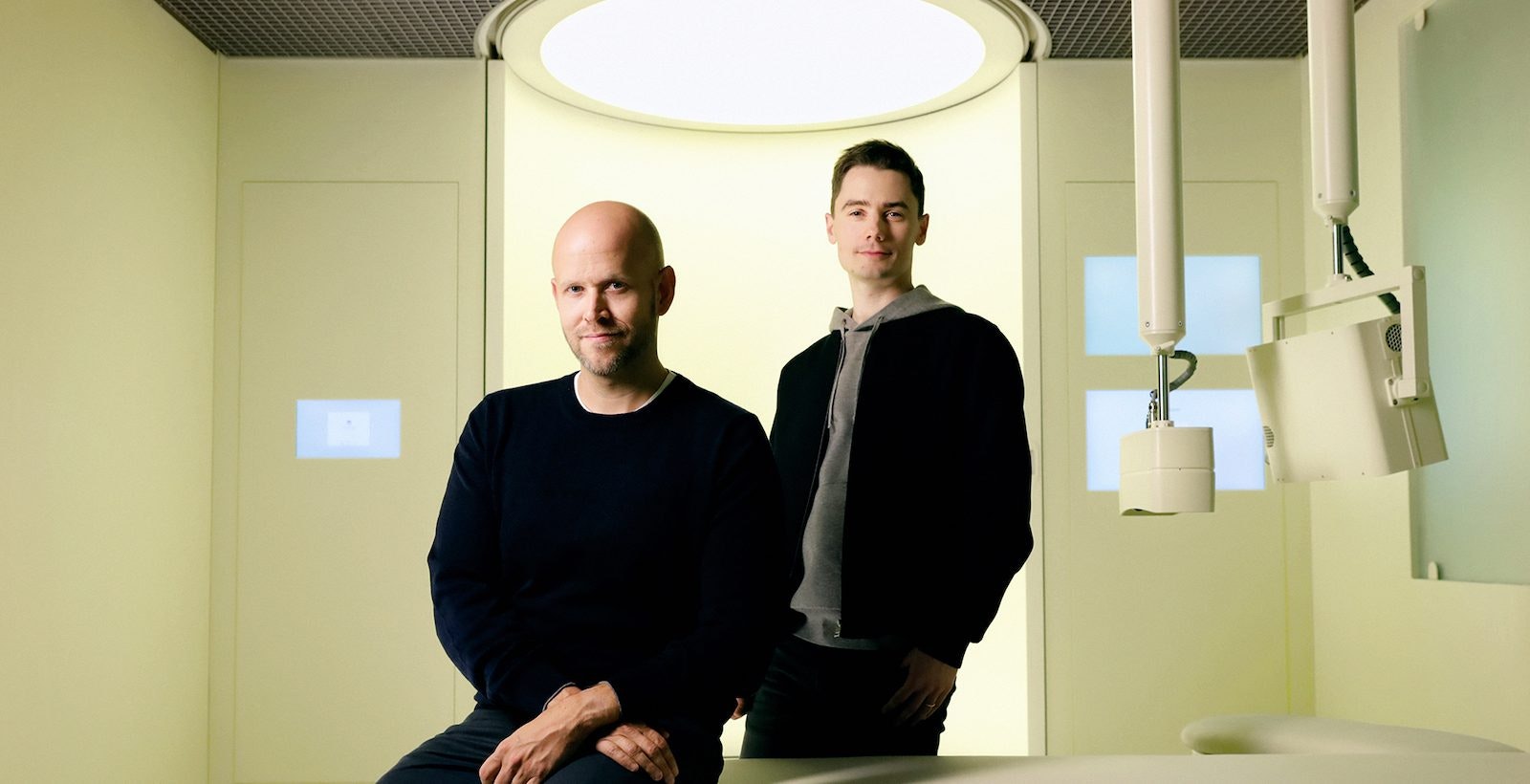When telehealth unicorn Babylon collapsed last summer and was forced to sell its assets for less than 1% of what the company was once worth, many industry watchers saw it as an ominous sign for the digital health sector.
They may well have been right. Investors, lawyers, bankers and startups all tell Sifted they expect to see more digital health firesales in the coming 12 months.
2023 saw digital health startups pick up just $1.1bn, according to Dealroom — the lowest amount since 2018 and a long drop from the record $3bn in 2021. While funding has dropped across European tech, few sectors have seen a fall of those proportions.
Slower-than-expected adoption of digital health solutions and a wider VC drawback from the sector leaves startups that raised during the frothy days fast running out of cash.
But while a last-resort M&A is looking like a strong possibility for many digital health startups — others smell opportunity in the tough landscape.
Where’s all the money gone?
“The whole digital health market was overhyped,” says Christoph Massner, principal at German VC Earlybird’s healthtech fund. “We thought that we could solve a lot of problems but adoption was overestimated.”
Across 2021 and 2022, major European startup backers like Accel, LocalGlobe, Index, Balderton and HV Capital participated in 34 digital health rounds, collectively. Last year, they were involved in just six.
Massner tells Sifted that many digital health startups just don’t stand up to benchmarking against others in health verticals like medtech and biotech.

“There’s been a shift [away from digital health] and towards those sectors from healthtech investors,” he says. “Almost all healthcare investors that we know put more emphasis on biotech and medtech [now].”
While adoption has been slower than expected, headline-grabbing failures among the sector’s poster children have also put VCs off, says Johannes Blaschke, principal at early-stage healthtech VC Calm/Storm. “Things like Babylon and [US-based digital therapeutics company] Pear Therapeutics happened, and had a direct impact on VCs backing digital health companies.”
Other digital health darlings have had to readjust growth plans as they tighten the purse strings. It’s all given VCs cause to think twice about backing startups in the sector, Blaschke adds. “Digital health as a unicorn VC case, particularly in Europe, is yet to be proven.”
“2024 will be the year of M&A”
As external funding options dried up in 2023, bridge rounds — raised from existing investors and typically funding a startup for six months to a year — became the norm for digital health startups, says Blaschke.
Across the wider European tech scene around a third of all rounds in 2023 were bridge funding, according to Atomico’s State of European Tech Report, their highest levels in five years.
But as investors double down on winners in their portfolio and pull back from others, bridge rounds will drop off this year, Blaschke adds. “For a lot who don’t raise their next round, M&A will become a probable and viable option. 2023 was the year of bridge rounds, 2024 will be the year of M&A.”

The lack of alternatives and dwindling cash reserves mean that some digital health startups will be forced to sell on the cheap. “There will be many firesales,” says Blaschke.
But the prospect of cut-price startups opens up a world of opportunity for companies with money in the coffers looking to expand their digital health offerings.
Pharmaceutical companies are one potential group of acquirers.
“Pharma has been slower to digitise than other sectors, but is now rapidly digitising and acquiring digital health applications,” says Marcus Vass, healthtech-focused partner at law firm Osborne Clarke. “The appetite from pharma [to acquire digital health startups] is far greater now than it was in 2021.”
Big Tech could also jump on the digital health M&A bandwagon, says Matthew Edwards, another partner at Osborne Clarke.

“[Most Big Tech companies] have venture arms that are looking at healthtech and divisions focused on development of healthcare technology,” he tells Sifted. “Acquiring digital health platforms is a fast way of getting into a market they’re already considering.”
Blaschke is hearing that traditional brick-and-mortar healthcare providers like private hospitals are open to digital health M&A, too.
“They've realised that there are other innovative competitors jumping on the digital train,” he tells Sifted. “To keep the best talent and medical professionals you need some digital offering. Staff shortages are a big problem [in the healthcare sector].”
But Massner is more sceptical about digital health startups’ chances of finding acquirers when the money runs out.
While other healthtechs like biotechs have a clear path to an exit with a pharmaceutical company — because they slot neatly in with drug and treatment development value chains — digital health startups don’t always fit with their core business, he tells Sifted.
Then there’s also the problem of scale. The revenues those startups bring in wouldn’t “make a dent in pharma companies’ top line”, Massner tells Sifted.
“We’re going to see a lot more digital health startups going out of business [in 2024].”
Startups buying startups
While the funding crunch will likely spell a disappointing sale — or worse — for some digital health startups, others in a stronger financial position are licking their lips.
“Several leading VC-backed companies [are] looking at M&A as a tool to bolt on sub-scale competitors, thus acquiring customers, geographical access and products or features in a capital-efficient manner,” Ashish Patel, managing director at Deutsche Numis, told Sifted at the start of the year.
UK-based remote monitoring startup Huma is one of those which is keeping a watchful eye over the digital health M&A space.
The company has picked up $217m worth of funding, according to Dealroom, since launching in 2011 and has acquired two startups in the past two years. It also raised £20.5m in June 2023 to fund the acquisition of an as-yet-unannounced company.
“Over the past 12 months, we have experienced an increase in the number of outreaches from companies, their advisors or shareholders looking to see if an acquisition is something we would consider,” a Huma spokesperson tells Sifted. “We are more actively looking [at the M&A market] at this time, given the change in capital markets.”
French healthcare software scaleup Doctolib — Europe’s most valuable digital health company — also tells Sifted that it plans to be more active in the M&A market in the coming months and years.
And it’s not only late-stage digital health companies that are shopping around right now.
Blaschke says some of Calm/Storm’s early-stage portfolio companies are already beginning acquisition processes with other startups. Cut-price firesales are a “great opportunity” for well-funded pre-seed and seed startups to get access to talent and expand their offering, he tells Sifted.
“In healthcare there's a lot of small island fragmented solutions — but you need M&A to do horizontal integration. It’s a big step towards a more holistic solution,” Blaschke adds.
In a world where many healthcare buyers have begun to suffer from point solution [healthtechs that focus on one product] fatigue, the struggles of some startups could be just what the doctor ordered for others looking to widen their route to market.


